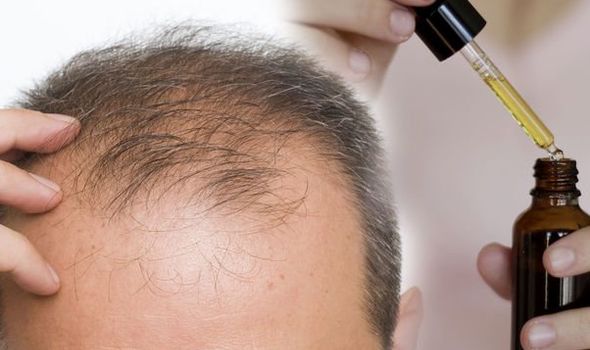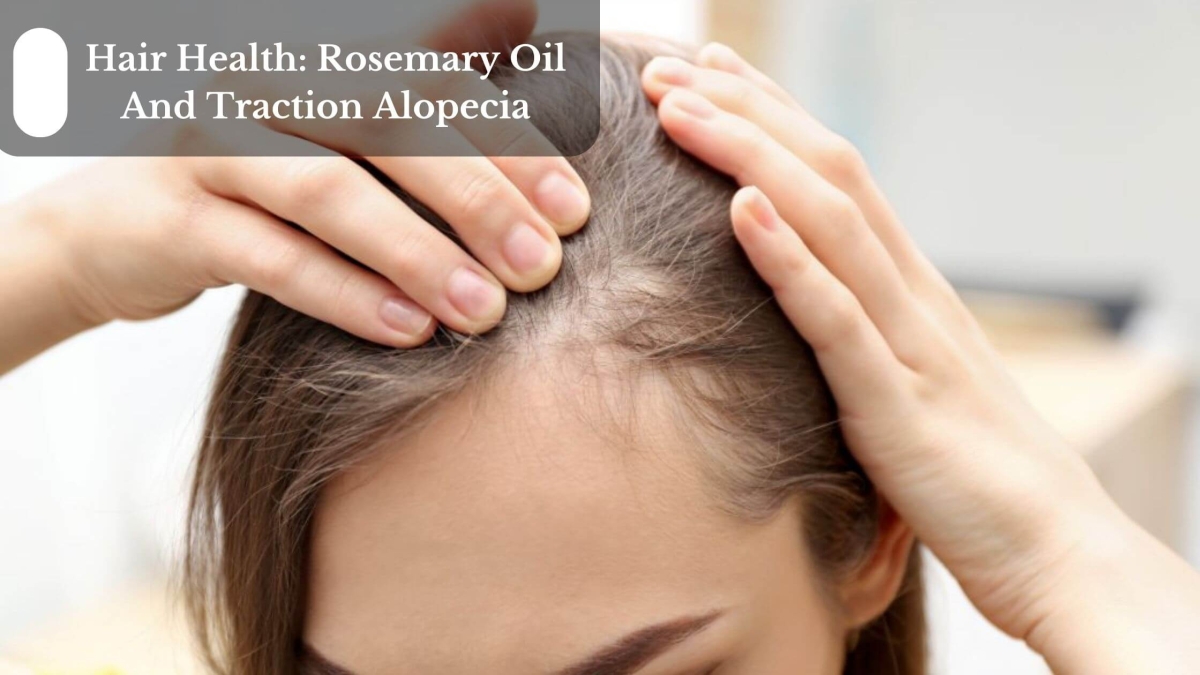Tight braids, ponytails, cornrows, and weaves may lead to traction alopecia – an inflammation of the edges of your scalp that results in hair loss around its margins. While it affects women of any ethnicity, African-Americans, ballerinas, gymnasts, and flight attendants often use protective styles on their locks which contributes to it.
Anti-Inflammatory
Rosemary oil’s anti-inflammatory properties make it an effective treatment for numerous conditions, from headaches and migraines to muscle and joint ache relief by inhibiting certain chemicals released in the brain that trigger pain receptors.
Rosemary contains natural antibacterial properties that can protect against tooth decay, gingivitis, and plaque build-up. Just half a teaspoon mixed in one cup of water acts as an effective mouthwash to combat these problems caused by Streptococcus sobrinus bacteria.
Studies have demonstrated that inhaling rosemary oil enhances memory and cognitive performance through its neuroprotective properties. Rosemary contains compounds that have a direct action on the brain, increasing blood circulation while stimulating new cell formation.
Due to its anti-inflammatory properties, rosemary oil can help ease stress by lowering cortisol levels – a hormone that disrupts our hormonal systems. The scent of rosemary oil also soothes the senses when worn as perfume – it reduces cortisol by 50%.
Rosemary contains analgesic properties that can help alleviate pain. One study showed stroke survivors who rubbed rosemary oil onto their necks experienced less discomfort compared to those using neutral oils.
When applied topically, rosemary oil can also relieve itching in the scalp and headaches; you can add several drops of carrier oils before massaging into the scalp or diffuse it for an all-day calming aromatherapy effect.
Antioxidant
Rosemary oil is an incredible anti-oxidant, helping your body flush free radicals out and keeping cells healthy while also treating acne, blemishes, and other skin conditions. Plus, its antibacterial properties prevent plaque formation and gum disease! Plus its 1,8 cineole content may even help ease respiratory infections!
Add rosemary oil to your shampoo or conditioner to give your hair more thickness and strength, promote scalp circulation, encourage new growth, treat dry and dull tresses, and treat traction alopecia by stimulating hair follicles to expand more quickly and thicker than usual.
Use rosemary oil as a natural scalp massager by diluting it with carrier oils such as coconut, olive, jojoba, or almond oil. This will reduce irritation caused by its strong scent.
As well as using rosemary oil to stimulate hair growth, eating foods rich in protein may also help. Protein forms the building blocks for hair strands; any shortage of this nutrient could result in thinning hair or other symptoms related to traction. Include eggs, milk, lean meats, nuts beans, and dark leafy green vegetables as sources of protein-rich foods in your diet.
Antiseptic
Rosemary oil contains antiseptic properties that can kill germs and fight infections. Furthermore, its antidandruff effects make it an excellent option for anyone suffering from traction alopecia as an everyday scalp massage oil. You can find rosemary oil at most health stores; for maximum effectiveness, it should be mixed with another carrier oil like coconut oil to ensure maximum effectiveness.
Rosemary oil aromatherapy can help relieve stress, improve memory, and sharpen focus. This is due to the oils within this herb having an impactful impact on chemical compounds within the brain that control mood as well as how our bodies react to pain.
You may also like:
Studies have demonstrated that rosemary oil can also provide support to those suffering from Raynaud’s disease, an illness in which blood vessels constrict and become cold, by warming her fingertips more than neutral massage oil did. According to one experiment involving this condition, when massaged her fingers with rosemary oil she experienced less discomfort.
Although there are medicinal treatments for traction alopecia, they are limited in availability and cost. Furthermore, they don’t always work for everyone. Therefore, the best approach would be to try avoiding tight hairstyles that tangle or pull on the roots of the hair as well as including foods rich in protein such as whole grains, lean meats, dairy products, nuts beans, or dark green vegetables in your diet.
Antibacterial
Rosemary oil’s antibacterial properties can help cleanse and combat dandruff, one of the main contributors to hair loss. Furthermore, rosemary oil’s blood circulation benefits can promote hair growth. As an effective rosemary oil treatment for traction alopecia, add several drops of essential oil with coconut oil and massage it into your scalp daily – repeat as necessary!
Tight hairstyles such as cornrows, ponytails, and braids can pull at your hair follicles and cause traction alopecia, leading to hair follicle damage. Switching up your style regularly is one way of helping avoid this condition. Rosemary oil contains anti-inflammatory and antioxidant properties which may reduce itching and inflammation on the scalp while stimulating hair follicles for new growth.
Rosemary oil contains several compounds with antiviral properties, specifically 1,8- cineole and cineole which have the power to inhibit herpes viruses in laboratory tests as well as reduce their infectiousness on skin cells.
Rosemary oil’s woody scent can help to reduce stress levels, boost mental activity, and stimulate respiratory systems. Inhaling rosemary oil may also relieve nausea and vomiting, promote digestion, alleviate headaches, and relieve fatigue; furthermore, it has also been shown to improve memory and cognitive function among healthy adults, lower cortisol levels which suppress immunity leading to insomnia and mood swings, treat colds and flu faster by relieving symptoms like coughing and congestion and provide mental relief from stress-inducing fatigue.
Antifungal

If you suffer from permanent traction alopecia, rosemary oil can help stimulate hair growth and prevent further damage. Rosemary extract contains carnosic acid which has been proven to block DHT, the hormone responsible for hair loss. Rosemary oil also stimulates cell turnover and enhances scalp circulation – in fact, one study revealed it to be more effective than conventional medications for androgenetic alopecia in treating patients suffering from it.
Rosemary oil also boasts antifungal properties. Its combination of rosmarinic acid and ursolic acid can kill fungi that cause tinea capitis infections, helping heal them quicker than they might otherwise. Furthermore, this oil may also help combat dandruff that contributes to hair loss as it cleanses scalps while encouraging healthy skin that will promote hair regrowth.
Rosemary oil extracts have been shown to exhibit antioxidant and antimicrobial activities due to phenolic compounds like rosmarinic acid, ursolic acid, and isopropanol; furthermore, they have also been proven to delay lipid oxidation processes in oils, meat products, and biological systems.
Rosemary oil can be massaged into the scalp to improve circulation and promote healthy skin. When combined with other herbs, such as dandruff remedies, rosemary oil can also help block hair follicles that hinder hair growth and hamper its development. Incorporating rosemary oil into your diet increases biotin, an essential water-soluble vitamin for maintaining both hair and skin health.
Antimicrobial
Rosemary oil’s antimicrobial properties make it particularly effective against fungus. When applied topically, rosemary oil helps eliminate it by suppressing the production of new fungal cells – this may explain why people suffering from conditions like ringworm or athlete’s foot may find relief using rosemary oil massage blends.
Rosemary contains anti-inflammatory properties that help reduce tissue inflammation and stiffness, making it a popular ingredient in pain-relieving massage oils. One study discovered that when people with rheumatoid arthritis were given 15-minute knee massages with rosemary oil three times weekly for two weeks, their knee inflammation decreased by 50% compared with those who didn’t get these massages.
You may also like:
Rosemary oil not only has anti-inflammatory effects but it is also an antioxidant with powerful free radical-fighting capabilities, protecting tissue and organ damage caused by free radicals. This is due to the high concentration of phenolic compounds present in rosemary essential oil; when given to rats it was shown that its terpenes reduced hepatotoxicity caused by hexavalent chromium and preserved liver function.
Though rosemary oil poses minimal risks, it is wise to dilute your essential oils with a carrier oil before applying them topically. Furthermore, for those with sensitive skin, it’s always wise to do a patch test first and see how your reaction goes.









